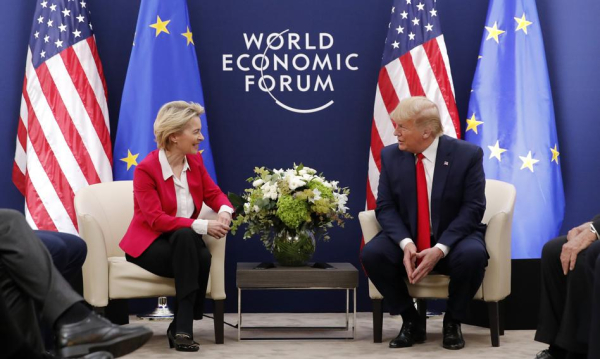The European Union decided on Wednesday to impose retaliatory tariffs on the United States. According to EU sources, the decision was supported by almost all member states; Hungary was against it. The retaliatory tariffs are in response to the imposition of additional tariffs by the United States on steel and aluminum.

The list of goods was proposed on Monday by the European Commission, which is responsible for EU trade policy. On Wednesday, member states approved it in a vote; 26 countries voted in favor.
The vote against imposing retaliatory tariffs on the US was announced on Platform X just before the vote by Hungarian Foreign Minister Peter Szijjarto. Meanwhile, on Monday at a meeting of ministers responsible for trade in Luxembourg – as reported by two diplomatic sources – the Hungarian representative did not raise any objections to preparations for imposing retaliatory tariffs.
Tariffs of up to 25% are to apply to €22 billion worth of US goods, with some tariffs coming into effect in mid-April.
Read also
China retaliates strongly. They will raise tariffs on imports from the US to 84 percent.
In the statement, the EC stressed that the retaliatory tariffs “can be suspended at any time if the US agrees to a fair and balanced outcome of the negotiations”. “The EU considers the US tariffs to be unjustified and harmful, causing economic harm to both sides and the global economy. The EU has clearly expressed its preference for finding a negotiated outcome with the US that is balanced and beneficial to both sides,” the EC said.
The document with the list of goods, which PAP saw, is 67 pages long. The list, on which the countries were to vote, includes agricultural products such as poultry, fruit, nuts and soy. There were also motorcycles and yachts . The list did not include whisky, however, due to concerns among others from wine-producing countries in Europe about US retaliation against European alcohols.
The approved EU tariffs are a response to the 25 percent tariffs on steel and aluminum imported to the U.S. raised on March 12. The EU tariffs will come into effect gradually, starting in mid-April.
“Today's vote of approval by member states means that – once the internal EC procedures are completed and the implementing act is published – the countermeasures will enter into force. Customs duties will start to be collected from 15 April,” the EC said.
The second part will come into force on 16 May, and EU tariffs on several goods such as soya and nuts will be raised on 1 December.
According to the announcements, EU tariffs will apply to US goods, the import of which amounted to €22 billion in 2024. Meanwhile, the value of steel and aluminium from the EU to the US amounted to €26 billion.
The EU has not yet responded to the so-called reciprocal tariffs that have been in force since Wednesday. The United States has imposed them on trading partners that have a trade surplus with the US; for EU goods, the rate is 20%.
Meanwhile, goods imported from China to the U.S. have been subject to tariffs of 104% since Wednesday. This also applies to low-value packages, which is what Chinese e-commerce platforms such as Temu and Shein have been relying on, although in that case the tariff is 90%.
In retaliation for the so-called reciprocal tariffs imposed by the United States, the Chinese government on Wednesday approved an increase in retaliatory tariffs on goods imported from the US from 34 percent to 84 percent.
The EU is also considering a response to “reciprocal tariffs”. Both further tariffs on American goods and the introduction of non-tariff barriers are being considered, including in trade in services with the US, where the EU has a deficit (while there has been a surplus in trade in goods with the United States so far).
From Brussels Magdalena Cedro (PAP)






